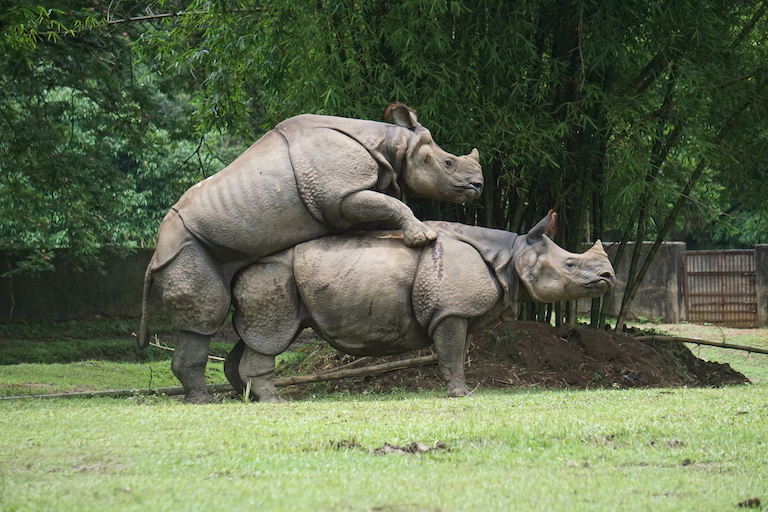By Frank Kamuntu
Lawmakers on the Committee of Commissions, Statutory Authorities, and State Enterprises (COSASE) have raised concerns about the low reproduction rates among some animals at the Entebbe Zoo, despite significant taxpayer money being spent on their upkeep.
Medard Sseggona (Busiro East) highlighted the issue, questioning why the rhino population at the Uganda Wildlife Education Centre (UWEC) remains low and suggesting that fertility issues might necessitate artificial insemination.
“You have two rhinos, so you must protect them 24 hours. Do they produce, or are they barren?” Sseggona asked. James Musinguzi, Executive Director of UWEC, attributed the rhinos’ failure to reproduce to their captive environment, causing them to perceive each other as siblings.
“They haven’t reproduced because in captivity, they tend to see each other as brother and sister. But now, we are working on a project to introduce competition by bringing in either a male or a female,” Musinguzi explained.
However, Sseggona challenged this reasoning, noting that the Ziwa Rhino and Wildlife Ranch, a private facility, has a larger rhino population despite also raising the animals in enclosed spaces.
“Is that the reason they give you, why they aren’t producing? The issue isn’t lack of competition, because they are mating, maybe for pleasure. You need to find out whether they aren’t barren. If they weren’t mating, that would convince me that they see each other as siblings,” Sseggona argued.
Sseggona also expressed concern over the delay in considering artificial insemination, given the advancing age of the rhinos and its potential impact on their reproductive health.
“Have you considered artificial insemination? You had them for a long time; I thought you would have been motivated to multiply them long before,” Sseggona remarked.
Musinguzi responded that artificial insemination would be considered after the results of a hormonal study are established. “That is the next step, after determining whether there is a hormonal imbalance or other issues preventing them from reproducing,” he said.
Racheal Mbabazi, Wildlife Veterinarian at UWEC, attributed the delay in conducting the hormonal study to a lack of funds and capacity at UWEC. However, she noted that recent investments have improved their capabilities.
“The hormonal study needed capacity, and recently we started building laboratories to conduct these studies. Now, with the labs in place, we will be able to perform the hormonal studies,” Mbabazi explained.
Sseggona questioned why UWEC, a science-based institution, operated without a proper laboratory for so long. “When did you first request funding for this in your budget and work plan? Why would it take you years to think of buying a laboratory? A lab is basic for any scientific work,” he stated.
Musinguzi clarified that Entebbe Zoo had a basic laboratory for limited research, which is now being upgraded. “We had a laboratory, but it was basic. Now, with the new Act and funding from the World Bank, we are establishing a bio-bank to conduct more advanced analyses,” Musinguzi said.
According to UWEC, visitor numbers have grown from 476,000 in 2022/23 to 609,000 in 2023/24. The sanctuary currently houses 312 animals across 74 species.
“We have paved all the roads in the center, built new parking, a new gate, and implemented ICT and AI surveillance systems to ensure the safety of our animals,” Musinguzi added.
Sseggona emphasized the importance of ensuring that taxpayer money is used effectively, urging UWEC to prioritize reproductive health studies and interventions for the rhinos. “We need to see results, not just processes. The rhinos are a valuable asset, and their reproduction is crucial for conservation efforts,” he said.
In response to these concerns, UWEC has pledged to expedite the hormonal studies and consider artificial insemination as a viable solution to boost the rhino population. The Centre aims to provide a comprehensive report on the rhinos’ reproductive health and future plans in the coming months.
With the government’s support and increased funding, UWEC hopes to overcome these challenges and enhance the conservation and breeding programs for rhinos and other endangered species in Uganda.
Have An Advert Or Article You Want Us To Publish? WhatsApp: +256760530830.


